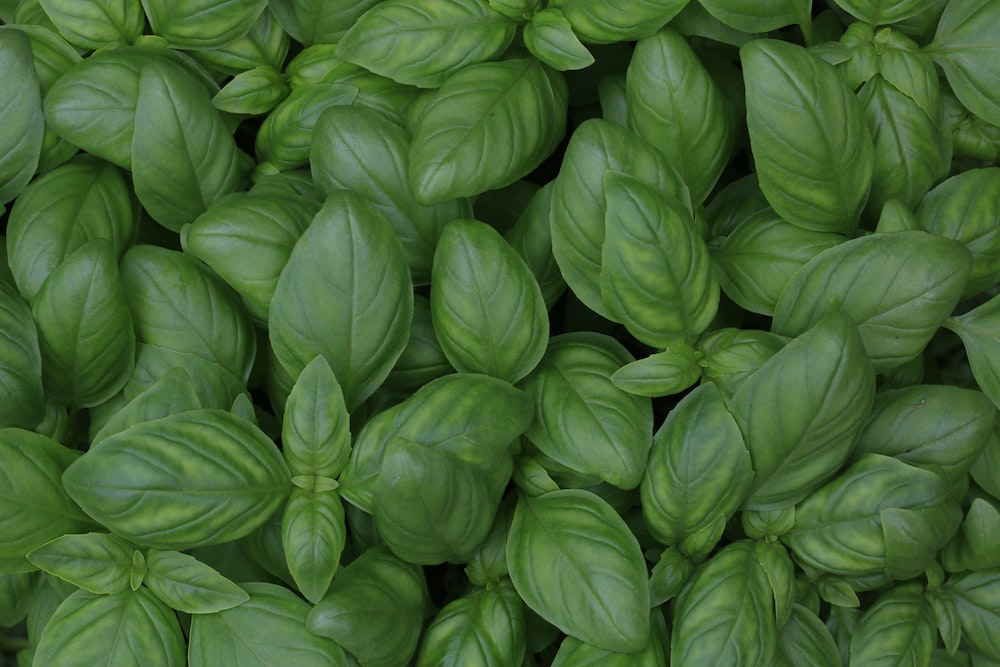Top 5 best adaptogens for immunity

Our immunity takes a hit when the weather turns cold and flu season sets in. It’s at this time that many of us turn to immune-boosting herbs for support. These potent herbs help your body tackle and adapt to stressors by increasing its innate ability to respond positively to stressors and threats.
Adaptogens are supercharged plant allies with incredible benefits. They aren’t only good for helping you cope with stress and help your body return to homeostasis faster after you experience a stressful event. This article gives you an overview of these unique herbs and their benefits. Let’s get started...
What are Adaptogens?
An adaptogen is a plant-based compound that helps the body cope with stressors. Adaptogens have gained popularity over the last few years as an alternative health approach that supports homeostasis and balance in the body (1). They’re also known for their anti-aging and anti-inflammatory properties.
Many different adaptogens have been used for centuries in traditional healing practices worldwide. While all these herbs have unique properties, they also share some commonalities. Some main qualities of adaptogenic herbs include stress reduction, immune boosting, and improved mental clarity.
Adaptogens are neither stimulants nor sedatives but promote balance and calm. The effects of adaptogenic herbs can be cumulative, meaning you may take them over weeks or months to feel their full effect.
Key Adaptogenic Herbs
Ashwagandha
The Indian herb ashwagandha (Withania somnifera) is one of the most common adaptogens in Ayurvedic and Chinese herbalism. Its root has been used for centuries as a general health tonic (2).
Benefits:
- Potent anti-inflammatory and anti-stress effects.
- Supports a healthy immune system.
- Benefits fertility and reproductive health.
How to Use:
- Forms: Tincture, capsule, dried powder.
- Dosage: 500-2000 milligrams, three times daily.
- It is best taken in the early afternoon.
Cordyceps
A fungus called cordyceps develops on cephalopod larvae, just like mushrooms (3). Despite its viral-sounding name, cordyceps has been used for centuries as an immune system tonic.
Benefits:
- Regulates hormones controlling metabolic rate and blood sugar.
- Enhances stress response and athletic performance.
How to Use:
- Forms: Tincture, capsule, dried powder.
- Dosage: 500-2000 milligrams, three times daily.
Eleuthero (Siberian Ginseng)
This herb, dubbed the "king of adaptogens," is well-known for its potent health effects and has long been used in Traditional Chinese Medicine.
Benefits:
- Anti-inflammatory, antioxidant, and anti-aging properties.
- Supports healthy blood pressure, metabolism, and blood sugar.
- Boosts immune function and reduces stress.
How to Use:
- Forms: Tincture, capsule, dried powder.
- Dosage: 500-2000 milligrams, three times daily.
Holy Basil
Holy basil, or tulsi, is a sacred Ayurvedic and Buddhist herbalism plant renowned for its adaptogenic properties.
Benefits:
- Anti-inflammatory, antioxidant, and anti-stress effects.
- Supports immune health, anxiety relief, and better sleep.
How to Use:
- Forms: Tincture, capsule, dried powder.
- Dosage: 250-1000 milligrams, three times daily.
Licorice Root
Licorice root is a well-known adaptogen widely used in Chinese herbalism, particularly for managing chronic stress.
Benefits:
- Boosts serotonin levels, aiding sleep and mood.
- It supports immune function and alleviates seasonal allergies.
How to Use:
- Forms: Tincture, capsule, dried powder.
- Dosage: 500-2000 milligrams, three times daily.
Schizandra Berry
A potent Chinese herb, schizandra is celebrated for its tonic and adaptogenic qualities.
Benefits:
- Antioxidant, anti-inflammatory, and anti-stress properties.
- Regulates metabolic rate and blood sugar.
- Enhances immune health.
How to Use:
- Forms: Tincture, capsule, dried powder.
- Dosage: 500-2000 milligrams, three times daily.
Related Studies:
- This study analyzed immune parameters in over 56 individuals over 4 timepoints in 1 year, finding clear seasonal variability in inflammatory markers, cytokine production, and T cell subsets.
- This review article discusses how photoperiod (day length) can mediate seasonal changes in immune function, with short day lengths enhancing immune function in various species.
- This preclinical study found that ashwagandha water extract inhibited inflammatory cytokines, oxidative stress, and activation of inflammatory pathways in the nervous system.
Conclusion
Many herbs can help boost immunity. These herbs help you feel less stressed, sleep better, and feel more energized. Some herbs to boost your immunity include ashwagandha, cordyceps, eleuthero, holy basil, licorice root, and schizandra berry.
These herbs can help regulate blood sugar, blood pressure, and hormones. They can help you feel less stressed and have more balanced energy. When your body is balanced, it can fight illnesses better and stay healthy.
FAQs
Q: How long do I need to take adaptogens to see results?
A: The effects of adaptogens are cumulative, meaning they build up in your system over time. It's typically recommended to take them consistently for several weeks to a few months to experience their full benefits.
Q: Can I take multiple adaptogens at once?
A: Many people combine different adaptogens to enhance their overall effect. However, you must consult a healthcare professional to ensure the combination is safe and effective for your particular health needs.
Q: Are there any side effects of taking adaptogens?
A: Adaptogens are generally well-tolerated, but some individuals may experience mild side effects such as digestive upset or changes in sleep patterns. Starting with a low dose and gradually increasing it while tracking your body's response is always preferable.
Q: Can adaptogens replace medication for stress or anxiety?
A: Adaptogens can be a helpful complement to traditional treatments for stress and anxiety, but they shouldn't replace medicines that have been prescribed without consulting a provider. Always discuss any changes to your treatment plan with a professional.
